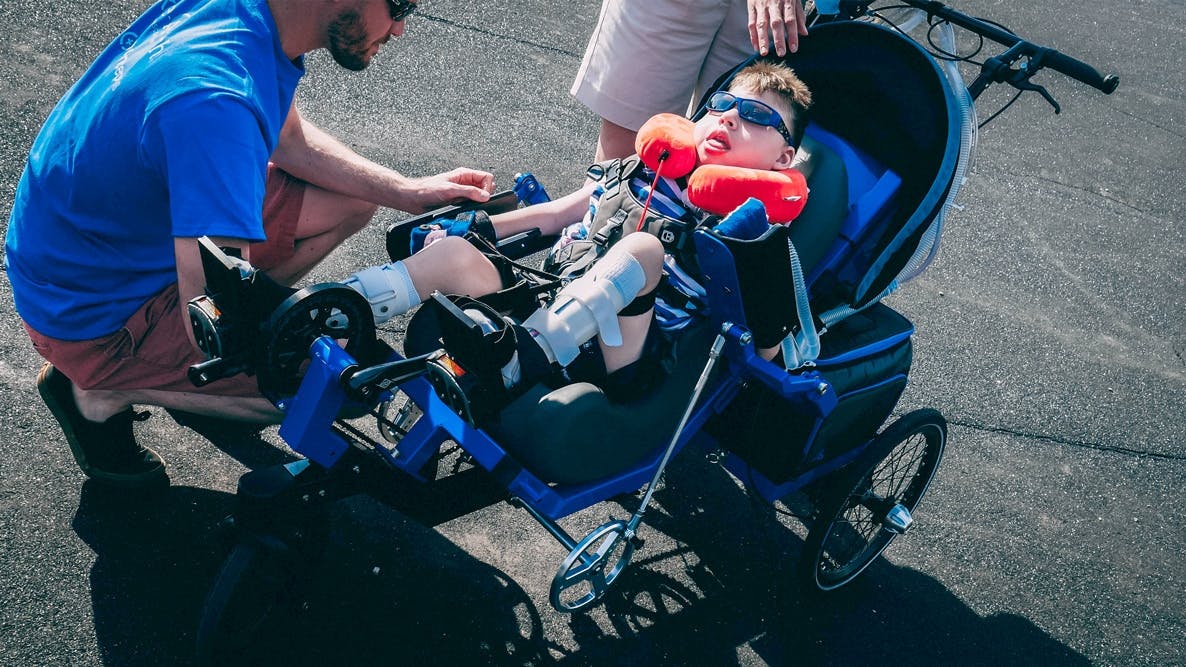Pushing each other along
A recent project with Make-A-Wish gave us the chance to make a meaningful connection with a family, which is a great benefit of product design.
Pushing each other along
Though we work in the service industry for larger corporations on a day-to-day basis, some of my favorite opportunities come in the form of community work.
It offers more than a temporary connection to your immediate neighbors. It provides a path for empathy and understanding of those you pass every day on the sidewalk, allowing a chance to get past our first impressions and dig deeper into what makes our neighbors tick.
I recently had the opportunity to help design a push-bike for a local family’s 9-year-old son, Joseph, who has special needs through the Make-A-Wish Foundation. While I try to help as much as I can on any given project, I had added interest in this effort as a parent with a special needs child.
Our family has been given so much assistance from a variety of people and practitioners, this project was a small attempt to use my own expertise to give back. The biggest challenge for me during the design process was to temper that commonality, relinquish my preconceived notions of what this bike might be, and fall back on our process by listening to our user(s) and their specific needs.
At Delve, we are generously given the opportunity for community outreach on a regular basis. We have repainted community centers, cleaned and prepped a public garden, created art installations for our local museum, and built a hand cycle for the University of Wisconsin’s Adaptive Sports program. The projects and programs vary greatly in required resources and time, but our design-led approach remains the same.
As designers, we are practiced in the art of finding unmet needs. We do this by first building empathy. We hold back on what we think we know and immerse ourselves in the experiences of the user. This was true with Joseph’s bike.
The project started, as all of them do, with a conversation. We listened to Mom describe his needs from a physical therapy perspective: the need for an alternating arm and leg motion. We heard his nurses talk about his medical requirements including a ventilator, suction, and space for his backpack full of day-to-day supplies.
Finally, we heard what the bike should be from the user’s perspective. For Joseph, it had to be secure, adjustable as he grows, and protect him from the elements while he rides. For Mom, Dad, and his caregivers, it had to be maneuverable, provide easy access to the equipment and Joseph, and finally, it had to be fun. In the end, we were able to deliver a bike that made the entire team excited. Joseph’s family and nurses were taken aback by the details that specifically addressed his needs and their own.
As designers, we understand that by listening, we are often able to transform someone’s wish into a reality. We understand that good design can be accomplished if we first let go of our assumptions and develop empathy for the user, connecting on the human level. If we can accomplish this in our day-to-day project work, we will surely experience the joy of seeing our designs in the community, making someone’s life better.
In that spirit, Delve is making the 2-D and 3-D CAD data available for public download. The concept is yours for the taking. So make it yours, as a direct copy or as inspiration for something a little different. Connect with those around you and experience the same feeling of happiness and accomplishment we had working with Joseph, his family, and the Make-A-Wish Foundation.
